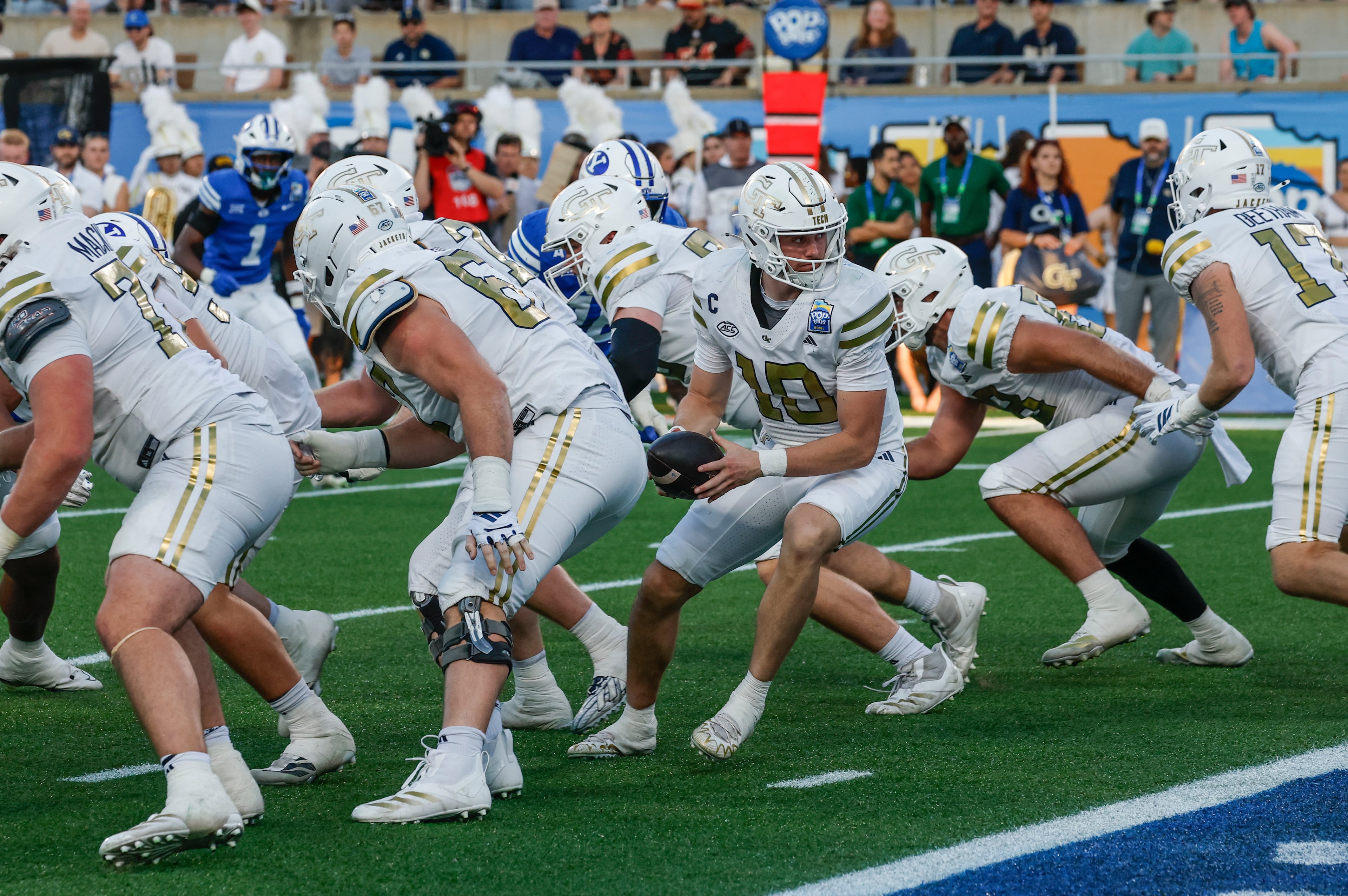No Georgia Tech-Clemson for some as ACC Network not provided by some carriers

A little more than a month away from the launch of the ACC Network, the financial bump that conference schools could receive this year may not be vast. The reason for it is one that could impact Georgia Tech fans hoping to watch the Yellow Jackets’ season opener against Clemson on Aug. 29.
Several large television providers, including some with a presence in the Atlanta market, have yet to agree to carry the soon-to-launch network in the ESPN family. Without access to the network, Yellow Jackets fans cannot watch coach Geoff Collins’ debut game against the defending national champions in their homes or, for that matter, the home opener the following week against USF. The ACC Network will carry that game, also.
Disney, which owns ESPN, has agreements with DirecTV, Verizon Fios, Hulu and Google Fiber, among others. AT&T U-Verse, Comcast, Charter-Spectrum and the Dish Network, all of which have significant coverage in Atlanta, have not reached agreements with ESPN/Disney.
It wouldn’t be a surprise if more cable systems add the network as the launch date approaches. Disney and Charter are reportedly set to renew their multi-year agreement in early August, for example.
The conference and member schools have been encouraging fans to contact cable providers to urge them to pick up the network. Slating premier games such as the Tech-Clemson game and four conference games to open the basketball season (including Tech-N.C. State on Nov. 5) on the ACC Network is a means of creating incentive for fans to demand it.
“So all of us, all the schools, are making sure their bases realize that if your cable company doesn’t show up on that list, then you’re not going to be able to see the opener against Clemson,” athletic director Todd Stansbury said.
From a financial perspective, the lack of agreements with major cable companies has led to modest revenue projections for the ACC and its member schools.
In its initial budget forecast for the 2020 fiscal year (which began July 1), Georgia Tech was counting on $31.8 million in distribution from the ACC, a healthy bump from the $28.0 million it was projecting for fiscal year 2019 (which ended on Saturday) when all the bookkeeping was completed. Of the $3.8 million increase, $1 million was expected to be the fruit of the ESPN-owned network, which launches Aug. 22.
By comparison, the SEC’s per-school payout jumped from $20.9 million in 2013-14 to $31.2 million in 2014-15, the year of the SEC Network’s launch.
However, Tech associate athletic director and chief financial officer Marvin Lewis called that $1 million projection “extremely conservative,” adding that there was “nothing set in stone.”
Disney, which owns ESPN, is in the midst of negotiation with several large cable companies to add the ACC Network to its packages.
“These projections obviously don’t take into account if some of those larger cable companies end up doing a deal sooner than later,” Stansbury said at a board meeting of the Tech athletic association in late June.
Part of the challenge that the ACC faces, Stansbury said, is that some of the contracts that major cable companies with Disney aren’t up for the next one, two or three years.
“So for a lot of those companies to negotiate with us now is to negotiate for one channel only, which is something that they’re not necessarily going to want to do,” Stansbury said.
Tech does forecast revenues to increase considerably in coming years, in no small part due to the ACC Network. For example, the revenues for fiscal year 2023 are projected to be $101.3 million, a 21 % jump from this year.
For a variety of reasons, adding carriers is critical to Tech, not least of which is financial. Tech has depleted its reserve fund after running a $9.6 million deficit this past fiscal year and projects to fall another $1.7 million in the hole in the new fiscal year. The more cable companies that pick up the ACC Network and start sharing their increased subscription fees with the conference, the better.
“So there is the possibility that we’ll be able to go from red to black sooner than what we’re projecting,” Stansbury said. “We just don’t know how those negotiations are going to go.”



